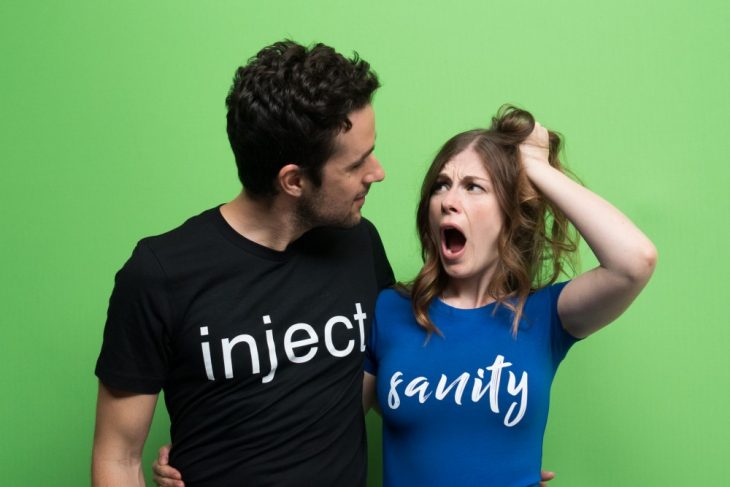
Also, own your IP
OTTAWA – As Netflix gobbled up most of the attention at Prime Time – roughly equal to the dominance it has gained over the wider Canadian TV market – conference delegates were also offered a panel on alternative streaming services where consumers are also spending their time, and money
And the conclusion from content creators and streamers assembled is the web series may be the new TV pilot as they help build and sustain online audiences.
"We're now in a position where the web series is the next TV pilot," said Steve Hulford, CEO of Toronto-based Underknown, a producer of humanities-themed web series for Facebook and YouTube with over 8 million followers worldwide. "For the cost of a TV pilot, we can make 40 web series episodes," he added.
Underknown then uses those to judge which ones grab the biggest audiences and then can be pitched as possible traditional TV adaptations. "We're able to bring to a broadcaster 27 million people who watch our videos to completion. That's what they want to de-risk their investment," Hulford added.
Lauren Corber, founder and president of Toronto-based LoCo Motion Pictures, whose digital series for the CBC include How to Buy a Baby (pictured) and My 90-Year-Old Roommate, starring Paul Soles, agreed web series can help discover and define mainstream audiences, on the cheap, and then be adapted for linear TV later on.
"Looking at web series as the next TV pilot makes perfect sense. It's way more cost-effective, and the content you get out of it, you get to build an audience and find out what's working and what isn't working," she told the Prime Time panel.
As viral video creators, Hulford and Corber, have become multi-taskers as they generate ideas, develop and hone video concepts and pitch digital content to broadcasters as possible series.Here, they join the other niche streamers and digital producers gathered this week at Prime Time as they follow Netflix and other streaming giants by skipping pilots altogether to go right to series, albeit on the web, as a way to make TV.
Corber has been making digital series for three years and went as far as telling industry colleagues to stop calling web content "new media."
"It's not new by any stretch anymore. It's become more recognized. And there's a lot of shorter form content that has done really well, and been converted to linear, or conventional series," she insisted.
"We're able to bring to a broadcaster 27 million people who watch our videos to completion. That's what they want to de-risk their investment.” – Steve Hulford, Underknown
So great is the pace of industry change, Corber added, that she now regards streaming VOD services, led by Netflix of course, as the new broadcast platforms.
"That's the way we're going. Sure, Netflix is the main network, and all those specialty SVODs are going to pop up," she said as the industry looks ahead to upcoming blockbuster direct-to-consumer streaming offerings from Walt Disney, NBCUniversal and WarnerMedia, and more smaller niche streaming services which have blazed a trail already or will follow in their market draft.
"They will be very targeted services. And eventually someone will bundle them together and we will be right back where we started," Corber added.
To make their way amid escalating streaming wars, Hulford and Underknown in 2017 produced around 500 three-to-five minute videos to test audience trends and preferences, and better design and monetize their digital content. "We've tried to take the intuition out of the decisions of where to invest our dollars. Out of that has come web series. One of them made $500,000 on Facebook last year," Hulford reported.
"We were constantly testing and iterating and letting data decide where and when we put our content, and how we share it and when we share it," he added.
At the same time, retaining the rights to its own IP has been crucial for Underknown. "If we didn't own our own properties, and weren't able to distribute it internationally in different languages, we'd be at a severe disadvantage," Hulford said.
He also warns against digital content creators giving up all ownership rights too quickly and cheaply. "It's almost impossible to finance short form content off of one fund. You can't make money if you do an exclusive deal somewhere," Hulford warned.
He recalled a content deal he was trying to close with SnackableTV, Bell Media's free-to-consumer, ad-supported short-form video content hub. The Bell Media commissioners wanted exclusive ownership of his content and Hulford, a veteran of Internet start-ups before launching Underknown, drove a hard bargain.
"They went hard with me, they wanted me to be exclusive. I'm glad I pushed back. I would have gone bankrupt. If that stuff starts getting locked down, you won't make money," Hulford argued.
Corber agrees digital content producers need to see upside for foreign exploitation, if they hope for success, saying "it's imperative to be able to license it (content) internationally.”


